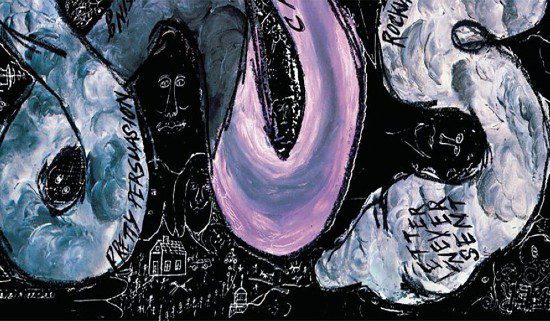No doubt you also have some earnest-but-naive friend/acquaintance who fills your inbox with multi-forwarded e-mails concerning various urban legends — dire warnings about toilet-dwelling spiders or kidney thieves, or morality plays warning against unnatural acts involving peanut butter and household pets.
Usually I just delete these, but if I'm in one of my rare patient moods, I may reply, referring my friend to the appropriate pages at Snopes.com.
This usually gets my friend oddly miffed. Instead of responding with relief that she can stop collecting the pull-tabs from soda cans she seems resentful that this latest story isn't true after all. She wanted it to be true. It ought to be true. And somehow I've spoiled things by pointing out that it isn't.
Especially tricky was the matter of young Craig Shergold, a child with cancer whose dying wish was to set the world's record for collecting the most get-well cards. My friend had a particularly hard time accepting that this story isn't true because, in fact, it was.
The operative word there is "was." Past tense.
See there really was a Craig Shergold and he really did have cancer and he really did set out to break the world record. And did he ever.
The happy ending part of the story is that not only did Craig break the record, but his treatments were successful and he recovered from his childhood cancer. The not-so-happy, never-ending part of the story is that people won't stop sending cards. Millions of cards. And thanks to the ever-evolving nature of urban legends, the various addresses flooded with this never-ending stream of letters are also receiving thousands of business cards.
The e-mail my friend received included a picture, which may or may not have been of Craig Shergold. That picture was enough evidence to make it difficult to convince her not to send a card or, at the very least, not to e-mail everyone she knew urging them to send a card. The picture convinced her that there really was a sick young boy collecting cards.
And there really was. But was is different than is., and Craig Shergold is no longer a little boy, is no longer sick and is no longer, God help him, collecting cards.
That was/is distinction can apparently be tricky.
Consider, for instance, President Bush's repeated insistence that he could be certain — invasion, occupation, 540+ dead, $200 billion certain — that Saddam Hussein has weapons of mass destruction because we know he used to have them:
He not only has them, he's used them. And he's not only used them in his neighborhood, he's used them against his own people.
The president is correct, of course, that Saddam Hussein did in fact use chemical weapons against Iran and against Iraqi Kurds.
That was during the 1980s — back when Craig Shergold was a sick young boy in the hospital, inviting the world to send him cards. Since then Craig has become a healthy young man and his family has moved to escape the unending postal onslaught. Since then the nations of the world destroyed Saddam Hussein's army in the first Gulf War in 1991, which was followed by seven years of intensive inspections and forced disarmament, isolating sanctions and weekly bombing raids by U.S. and British warplanes.
Was does not equal is.
Had does not equal has.












